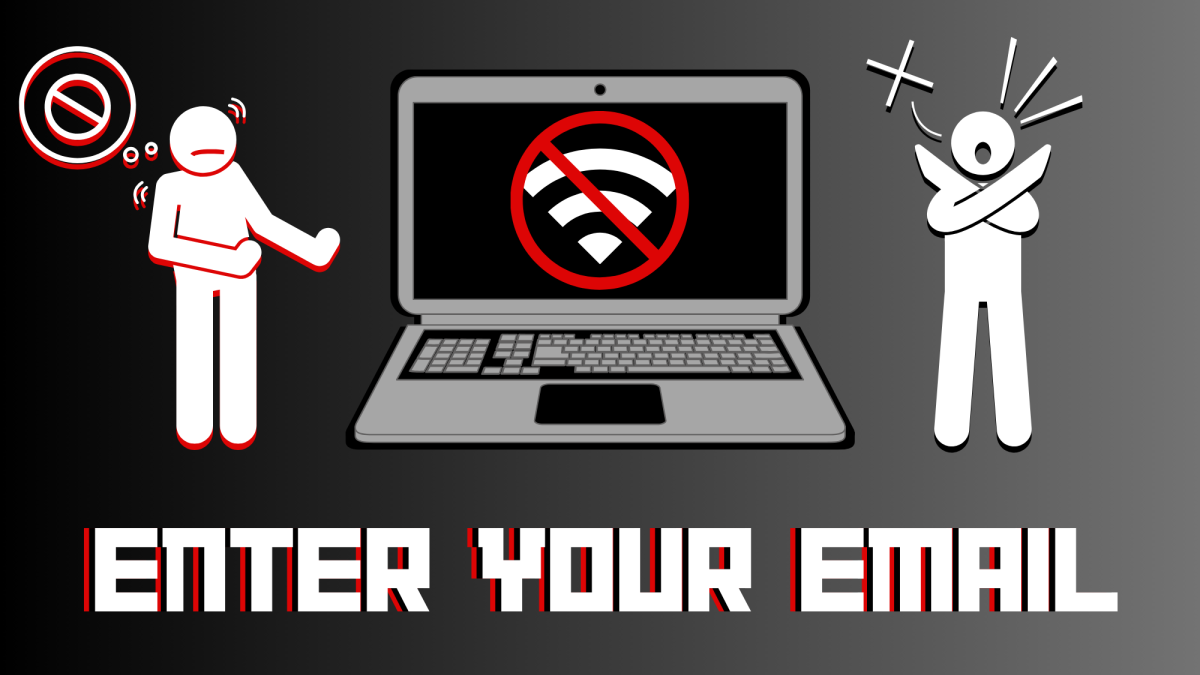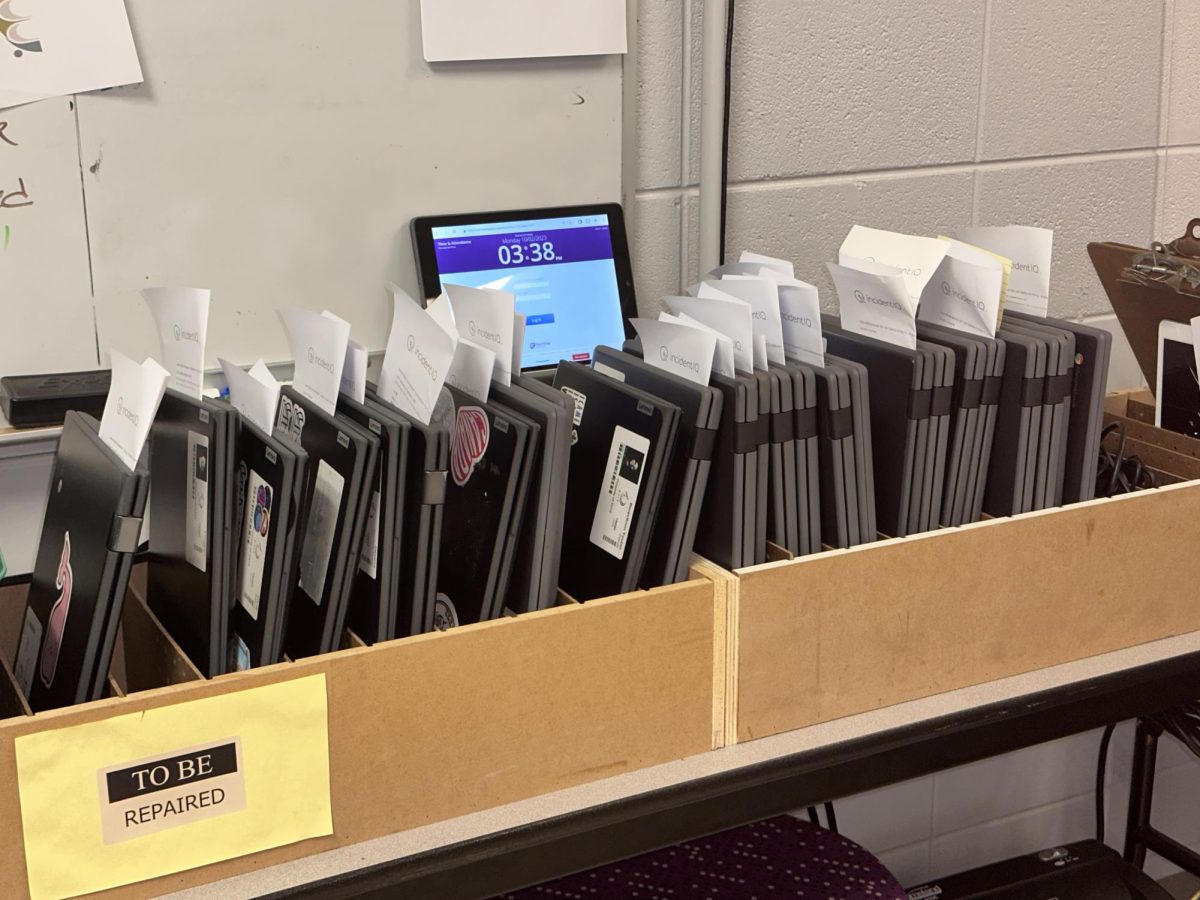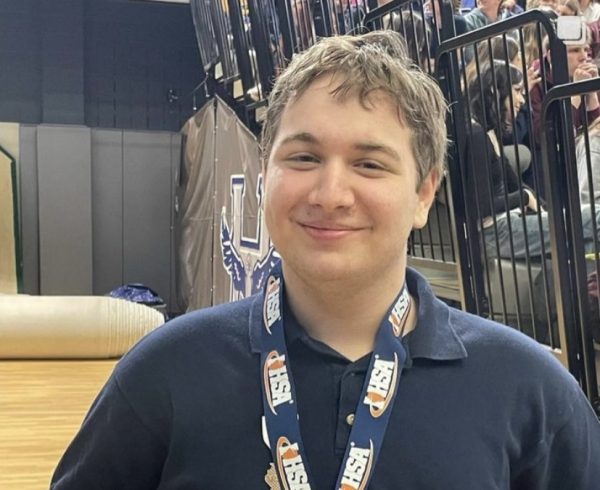With the start of the 2023 school year comes many changes to life at Niles North, and that includes deliberate changes to student WiFi and unexpected changes in loaner chromebooks. These changes have gained a sour reputation among NN’s students, even if some of these changes were added with good intentions.
For WiFi, if students wish to use the “NTHS-GUEST” WiFi through non-school issued devices, they must enter their name and phone number or email where they will receive a personalized code which allows their device to connect to school WiFi. This connection only lasts for a day however, with the process requiring daily repetition if students wish to connect to the WiFi every day. Even so, school WiFi has shown to be poor in certain areas of the school, further annoying students. Places where some students claim the WiFi is weak or unresponsive include The Point, the library, the athletic halls, and the cafeteria. Sometimes connections for mobile devices work better when WiFi is turned off completely.
“I do feel like the school has had a lot of issues with [WiFi] service,” an anonymous junior said. “There are even some places where you can’t even make a phone call and it’s just a big issue. [I feel that] it’s not a very solvable issue, it’s a problem with how the school is built. The WiFi has become even harder to access so it becomes a problem for people who don’t have mobile data or for people that need to do certain things on their phones, and can’t, because they can’t access the WiFi.
This change in WiFi was implemented in part due to security issues that occurred last year, requiring all school issued student passwords to be changed to something different in order to avoid another security breach. While many students quickly got into the habit of using a new password, many of this year’s students see the associated change in guest WiFi access to be tedious and unnecessary.
“There were always security issues coming up last year, there was always something on Canvas,” an anonymous junior said. “I’m pretty sure there was even an issue last year of someone sending out a hateful message through their school email. I don’t know whether these changes are helping, we’re not far enough into the year to see. I think that we should continue logging in to WiFi, because even though it’s very much a hassle for those who need the WiFi, security is a more pressing issue, and also chromebooks, they already connect to the WiFi. It’s an inconvenience but it’s not that big of an issue.”
The other pressing issue with school technology is access to loaner chromebooks. With so many school chromebooks needing repair and a lack of available parts in the school’s technology department, students with slow malfunctioning chromebooks are no longer able to get temporary replacements.
“We don’t have a loaner for every student, we just have like 30, and kids break them,” Senior Technician Abraham Sihweil said. “It seems I have 15 – 30 broken machines out right now, half of them are freshman ones where I am waiting for the [new] vendor (ASUS) to respond so we can get them fixed. The other ones, we’re looking for motherboards. Because we had so many repairs, I ran out of motherboards, and I’ve been scraping. So we are in the process of ordering motherboards and getting motherboards repaired so I can get my loaners back and get them ready for somebody else. There’s just a lot of broken machines and parts running out.”
Although the Tech Help Desk is out of loaners, Sihweil recommends students go to the school’s Bookstore to get both chromebook replacements and chargers.
“Right now, in the Bookstore, we have it set up where you can borrow a temporary [one day] loaner from the bookstore. We have a set of around 30 chromebooks ready to be checked out from the Bookstore if you need it.”
Students with minor chromebook issues such as low battery will fortunately be able to go to the Bookstore now for temporary help, if the Tech Help Desk can not provide it.
Surprisingly, despite not having to log in to WiFi in previous years, sophomores, juniors, and seniors seem to be fine with logging into WiFi now. Since many upperclassmen have seen and experienced many of the technological and security issues from last year, they are the ones who want to continue logging into the WiFi every day for security’s sake. The freshmen, however, are not so tolerant.
“I feel like the school should change the WiFi to make it more easy to access it,” freshman Alyssia Stanciu said. “They should remove logging in. They should make automatic [and immediate] reconnection to anyone who is in the school. It’s an inconvenience because it takes time to log in and go to your email, and get the code to resend, and it takes more time out of your day.”
With the issues of chromebook repairs come even more questions about the longevity and durability of chromebooks. Though not a pressing issue, many upperclassmen claim that their chromebooks are much slower now than they were when they were freshmen. Though this may be another issue with internet connection in disguise, and though the freshmen chromebooks are now made by ASU, inviting a positive change to longevity, the issue still remains for the upperclassmen.
“I am brand new to the district as of July, but I’m not going to make any excuses,” D219 Chief Technology Officer Phllip Hintz said. “The Juniper Networks system we have up right now, it’s a brand new WiFi system district wide, and it’s one of the most state of the art systems available to any school district or college out there right now. It utilizes AI and analyzes traffic to balance network traffic in real time. We did a scan of the entire building and put WiFi access points in the best places. The devices for the schools, like the school chromebooks, get top priority on the network, and whatever is left over is what the guests [and students’ phones] get. We have got to make sure your chromebooks are connecting to the best possible connection at the highest speeds at any and all parts of the building as well as the teacher’s devices. They are the top priority, they need to be connected at all times.”
Despite all the issues and complaints, Hintz has expressed that he wishes to hear them to improve technology at D219
“We are listening and we want your feedback,” Hintz said. “There are very similar concerns at Niles West as well. We’re going to see if we can make a BYOD (Bring Your Own Device) WiFi network for students as well as the teachers separate from the guest WiFi. This would be at all schools, here at North too. We want to address those concerns and I want to hear your feedback because that’s what will shape the network to better feed your needs.”
The WiFi speed and connection access on students’non-educational devices appears to be the most pressing and inconvenient issue on students’ minds. Fortunately, the priorities of the school district and its technology department(s) is obtaining better connections and helping the students to learn with their school issued devices. Maybe as the year continues, students may see for themselves some stronger WiFi, better security, or just learn to deal with the inconveniences of weak and annoying yet accessible school internet.











Cynthia Fey • Oct 10, 2023 at 9:04 am
Thanks for your reporting, James. Now I’m curious what it means to use AI to “balance traffic.”